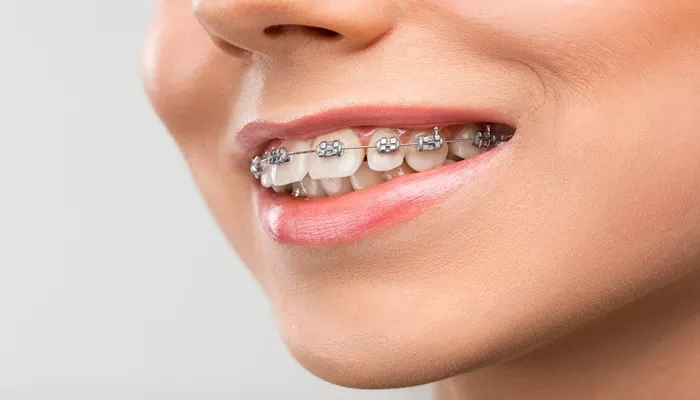Wisdom teeth, also known as third molars, typically emerge in late adolescence or early adulthood, around the ages of 17 to 25. These teeth are remnants from our evolutionary past when our ancestors had larger jaws that could accommodate more teeth for chewing tough foods. In modern times, however, many people find that their jaws are not large enough to accommodate these extra molars, leading to various dental issues.
The Importance of Orthodontic Treatment
Orthodontic treatment, commonly involving braces, aims to correct misalignment of teeth and jaws. Braces apply gentle pressure over time to shift teeth into their desired positions, improving both aesthetics and functionality. The primary goals of orthodontics include:
Correcting overcrowding: When teeth are too close together, it can lead to misalignment and difficulty in cleaning.
Addressing gaps: Spaces between teeth can affect bite and overall dental health.
Realigning bites: Misaligned bites can lead to uneven wear on teeth and jaw pain.
Given these objectives, the presence of wisdom teeth can complicate orthodontic treatment. This article explores whether wisdom teeth need to be removed before getting braces and the factors influencing this decision.
The Relationship Between Wisdom Teeth And Braces
Why Wisdom Teeth Can Be Problematic
Wisdom teeth can pose several challenges during orthodontic treatment:
Crowding: If there is insufficient space in the jaw for wisdom teeth to emerge properly, they can push against adjacent teeth. This pressure can cause existing teeth to shift or become misaligned.
Impaction: Wisdom teeth may become impacted, meaning they do not fully erupt through the gums. Impacted wisdom teeth can lead to pain, infection, and may necessitate surgical extraction.
Interference with Treatment: If wisdom teeth emerge after braces are applied, they can disrupt the alignment achieved during treatment. This could potentially undo months or years of orthodontic work.
Assessing The Need for Extraction
The decision to remove wisdom teeth before starting braces is not universal; it varies based on individual circumstances.
Orthodontists consider several factors:
Position of Wisdom Teeth: X-rays help determine if wisdom teeth are likely to cause crowding or if they are positioned favorably within the jaw.
Jaw Size: A larger jaw may accommodate wisdom teeth without issues, while a smaller jaw may necessitate removal.
Age of the Patient: Younger patients often have more malleable dental structures, making it easier for orthodontists to manage treatment without immediate extraction.
Benefits of Removing Wisdom Teeth Before Braces
While not always necessary, there are several advantages to removing wisdom teeth prior to orthodontic treatment:
1. Preventive Care
Removing wisdom teeth can prevent future complications that might arise during orthodontic treatment. By eliminating potential sources of crowding or misalignment, patients can ensure a smoother process.
2. Facilitating Orthodontic Movement
With wisdom teeth out of the way, there is more room for other molars to shift into their proper positions. This space allows for better alignment and can potentially shorten the duration of orthodontic treatment.
3. Long-Term Oral Health
Addressing wisdom teeth issues early on can contribute to better long-term oral health by reducing the risk of cavities, gum disease, and other complications associated with impacted or misaligned wisdom teeth.
When Is It Not Necessary to Remove Wisdom Teeth?
In some cases, it may not be necessary to extract wisdom teeth before getting braces:
Healthy Eruption: If wisdom teeth have fully erupted without causing pain or crowding, they may be left intact.
Adequate Space: If X-rays show sufficient space in the jaw for all molars—including wisdom teeth—removal may not be required.
Monitoring Growth: Some orthodontists prefer to monitor the growth of wisdom teeth during treatment. If they do not cause issues as braces are applied, extraction can occur later if necessary.
The Role of Orthodontists in Decision-Making
Orthodontists play a crucial role in determining whether wisdom teeth should be removed before braces:
Comprehensive Evaluation: An orthodontist will conduct a thorough examination and review X-rays to assess the position and health of wisdom teeth.
Personalized Treatment Plans: Each patient’s situation is unique; therefore, orthodontists develop customized plans that consider individual dental health and treatment goals.
Collaboration with Oral Surgeons: If extraction is deemed necessary, orthodontists often collaborate with oral surgeons to ensure a seamless transition between procedures.
Conclusion
The question of whether wisdom teeth need to be removed before getting braces does not have a one-size-fits-all answer. It depends on multiple factors including the position of the wisdom teeth, jaw size, age of the patient, and potential impact on orthodontic treatment.
While removing wisdom teeth can provide benefits such as preventing crowding and facilitating better movement during braces treatment, it is not always necessary. A thorough evaluation by an experienced orthodontist is essential in making this decision.

